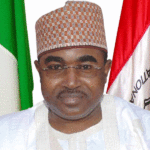When coronavirus struck early last year and left us gasping for salvation, we thought it was the beginning of new wisdom for our policymakers. It didn’t only leave the hospitals of functional countries overwhelmed, the African political class and their friends that had patronized them were stranded at home and at the mercy of the glorified primary healthcare centres they once commissioned as “ultra-modern” or “state-of-the-art” hospitals. They shared the same doctors and isolation centres as their drivers and cooks and the experiment recorded deaths of powerful and wealthy citizens whose death, ordinarily, would’ve been registered in the United States or Europe.
The optimism that change had come to us was driven by the helplessness of these medical tourism destinations. On March 27,2020, as its health infrastructure collapsed, the United States Department of State shared on its social media platforms: “We encourage medical professionals seeking work in the U.S. on a work or exchange visitor visa (H or J), particularly those working on #COVID19 issues, to contact the nearest U.S. Embassy/ Consulate for a visa appointment.” This attempt to steal the health workers of less-advantaged countries during a pandemic, dismissed as unethical by critics, demonstrated the scale of the danger posed by the pandemic.
- How smuggled petrol from Nigeria floods Niger, Cameroon, Benin, Togo
- What Buhari must learn from Kuala Lumpur
The first inspiration in the anarchy was China. Last year, in just five days, the Chinese built a 1500-room hospital to accommodate COVID-19 patients. During the construction of that hospital in January, the world had not realized the direction of the pandemic and the Chinese, who had set a record by building a hospital in six days to combat Severe acute respiratory syndrome (SARS) in 2003, must’ve struck the world as overreacting. The pace of completion of that hospital ought to have inspired policymakers from other countries, especially Nigeria. Especially Buhari, sorry.
Since assuming office, one of President Muhammadu Buhari’s biggest undoings was his medical tourism. But the pandemic left him at the mercy of local doctors and hospitals, and one would’ve expected that to inspire his faith in the Nigerian healthcare system. After six years in office, the excuse that past governments were the reason our hospitals are unfit to manage his health, has expired. That he’s incapable of setting up, in six years, the quality of hospital China built in five days to attend to his health needs, is haunting.
The resumption of Buhari’s medical tourism this week, amidst protests by some Nigerians in London, is his familiar middle finger to the people. If he were a reading president, a few days with a copy of A Doctor in The House: A Memoir of Tun Dr Mahathir Mohamad would’ve guided his contingency planning. In the book, Mohamad, a two-time Prime Minister of Malaysia, reveals how he mortgages his bad health to save his country. In 1989, during his first tenure, he suffered a heart attack. His doctor at the Kuala Lumpur General Hospital recommended surgery in the United States. He needed an angiogram. The doctors said he had had an infarction and prescribed a bypass. The bed-ridden politician objected to treatment abroad.
Recollecting what transpired then, he wrote: “They gave me a choice of either going to the US for the operation or having it done in Kuala Lumpur. Without hesitation, I decided I would have it done here. I had to have faith in our Malaysian doctors and knew that if I didn’t make an example of myself, no one else would have confidence in our medical service.” The Malaysia of his time bore striking resemblance to Nigeria where “all our VIPs had gone abroad…” except for Mohamad who “knew that Datuk Dr Rozali Wathooth had performed these operations successfully at the Kuala Lumpur General Hospital. He had already left Government service to work at the Subang Jaya Medical Centre, but there were other heart specialists at the General Hospital, including Tan Sri Dr Yahya Awang. I knew that Dr Yahya was quite experienced and I decided to entrust my life to him.”
Mahathir Mohamad is a doctor himself and not unaware of the risks staring him in the face. “I knew there was a possibility that I might not survive the operation as it was not, at that time, a common procedure,” he wrote. “People still feared letting doctors open up their chests and fiddle with their hearts. But I told myself that if I was going to die, then that was it—I would leave it to Allah and the skill of the surgeon. It may sound dramatic now that so many people have successfully undergone heart surgery, but once I had accepted the possibility of death, I felt quite calm.”
That singular “sacrifice” changed the history of Malaysia’s healthcare system, and it’s unsurprising that at age 92 in 2018, and about 15 years after leaving office, Mahathir Mohamad was re-elected as Prime Minister by his people. He had sacrificed his life for them. And after that refusal to travel abroad for medical treatment in 1989, he went on to build world-class medical facilities in the then underdeveloped Malaysia. It’s this remembering of his time in office, compared to the disastrous leadership (by Malaysian yardstick) experienced after him, that made the people embrace the nostalgia to elect “the world’s oldest political leader.”
The same Malaysia that was sceptical about the success of their leader’s heart surgery 32 years ago, has evolved into a destination of medical tourists, including Americans. Ranked among the Top 10 destinations of medical tourism in the world in 2018 by Patients Beyond Borders, an organization that tracks and advises on medical travels, Malaysia has since established its place in the medical world. In 2015 and 2016, Malaysia also won the International Medical Travel Journal’s award for “Health and Medical Tourism Destination of the Year.” This Malaysia began with a one man’s sacrifice, and that’s leadership.
Buhari left for medical treatment in London last week as the nation’s trainee doctors or house officers were on strike. They are being owed three months’ salary arrears. He didn’t care, and his Minister of Labour, Chris Ngige, demonstrated misplaced impassivity in threatening to continue withholding the payment of house officers who fail to show up and then have them sacked. With the President in a foreign hospital and the next generation of his country’s doctors on strike, there’s a need to search the soul of Nigeria.

 Join Daily Trust WhatsApp Community For Quick Access To News and Happenings Around You.
Join Daily Trust WhatsApp Community For Quick Access To News and Happenings Around You.


